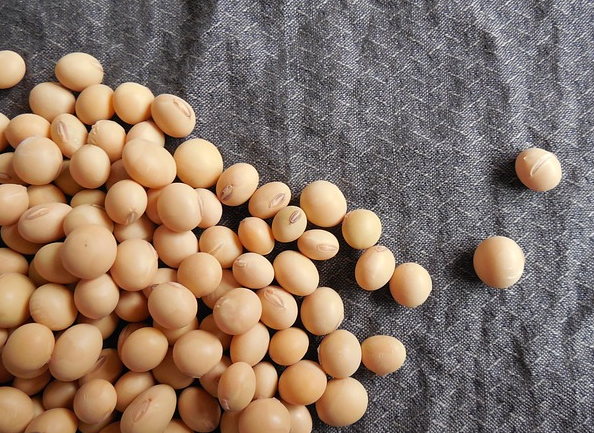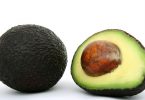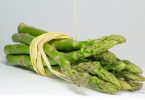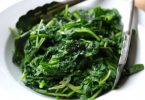Today’s question: can dogs eat soybeans? Are soybeans good or bad for dogs? Scroll down for detailed answers.
Soybeans are gaining in popularity with those who wish to alter their diets to a more protein based, whole food foundation. Any kind of bean is recommended for this type of diet due to the high protein content, natural aspect of the bean, and the nutrition offered in each tiny little bean. Bean may also be grown at home, on a farmer, and bough locally for those looking to to eat food grown closer to their home. Beans may be bought dry and in bulk, prepared and sold, or within another meal. The soybean may also be changed into other foods and added to other foods such as a soybean peanut butter or soy milk. The soybean is very much a versatile bean, making friends with everyone who chooses to buy or grow this bean.
One question I bet you have never been asked before is whether or not dogs can eat soybeans. Have you ever wondered if soybeans are safe for dogs? This is certainly a valid question. Generally, we would not think to feed soybeans to our pets. Many dog owners usually wonder about the safety of other different fruits and vegetables but can dogs eat soybeans? Are soybeans beneficial or are they harmful? Let’s find out about these answers right now!
Dog Food and Soy
Actually, if you were to check the ingredients listed on the dog food boxes, you would find that a lot of them contain soy. Soy seems to be a top ingredient in most everything. For those allergic to soy, this causes a problem, but for all others, we tend to ingest a derivative of the soybean more often than we know. Soybeans are also added to topical products such as shampoos, soaps, and moisturizers. There may even be a favorite brand of dog shampoo that includes soy or soybeans in their cleanser.
This gives us a preliminary answer, which is that dogs are certainly able to digest soy, have as a topical ingredient, and soy does not do them any harm or risk them being poisoned. Over the last few years, soy has come to be an ingredient that is very often found in all sorts of products, whether they are intended for animal or human consumption. Soy is a wonderful additive to many foods and can be a method of adding nutrition to your diet without much extra thought and effort. Therefore, we can draw the logical conclusion that there should be no issue with dogs eating soy. We may be able to draw our own conclusions, however, always consult your vet on the needs of your particular dog. There are breeds that do not agree with certain types of foods, and size also matters in terms of the digestion abilities of your dog.
Can Dogs Eat Soybeans?
The short answer is yes.
Dogs will pretty much eat anything and they would most likely try to eat soybeans as well. Dogs are actually eating soybeans as it is-they just do not know it yet! In the event your dog refuses to try the soybean, do not worry. There is no reason to actively try to feed soybeans to your canine pet. Soybeans are not toxic but they are not particularly nutritious either and your dogs may not be very attracted to them.
With the fact that soybeans may be turned down by your dog, you can always find a creative way in which to add the soybean into their diet on the side. Soybeans are easily added to most foods and may be in their kibble already. The dog may be adept to the taste of soybean within a particular food but not as a standalone bean. Try a few different ways of introducing the soybean, if you must, then go from there before determining whether your dog like this bean or not. However, to answer the question clearly, yes dogs can eat soybeans in moderate amounts.
The Issue with the Soy Content in Dog Food
The vast majority of soybeans produced nowadays are genetically modified. What this means is that your pet is not receiving the healthy food you are paying for but a strange substitute. Soybeans are generally thought of as a pure and nutritional bean, but this may be more likely to occur only when you grow the bean yourself or buy from a trusted farmer. Buying a large amount of soybeans from a questionable source may give you a low quality bean without the nutritional powerhouse you were looking for. Another aspect of the bean is that the pure form of the bean should lead one to believe the bean is free from genetic modifications. Many people are attempting to lead a GMO free lifestyle and surely do not want to introduce the GMO to the diet of their dog. Researching the location of your bean and where the beans were grown may offer you a look into how much the soybean has been modified and how the nutritional value stacks up against competitors.
Many companies that produce pet food use soy since it is a plant protein and can boost protein content and add bulk. Boosting bulk may add to profit margins and keep costs down, but at what price? Additionally, plant based proteins cost less than meat proteins and pet food manufacturers use them to increase profit margins. The pet food labels may not even list the soy as one of the ingredients but instead list it as a textured vegetable protein (TVP), vegetable broth or other aliases. If the soybean used to add bulk has been genetically modified, your dog may not be receiving all of the nutrition promised by the makers of the food.
Does this Mean I Can’t Give Soy to my Dog?
It’s not that you cannot offer soybeans to your dog, it’s that you have to be careful where the soy comes from and how much of it you add into your pet’s diet. It’s important to know that soybeans should not constitute a major part of a dog’s diet. In fact, recommended by many veterinarians, dogs should generally not have a very high vegetable intake. The dog food you give your dog is probably the best bet for diet, given that dog food manufactures must meet guidelines in food prep. The entire need with your preferred kibble for your dog’s development is within the traditional dog food. Adding raw foods and veggies to your dog’s diet does not necessarily help him/her, but may be used as a supplement or occasional treat only. Adding veggies to your dog’s diet may serve as a reminder to add veggies to your diet as well, but do not place too much importance on a raw food diet for your dog.
There are exceptions, of course, when it comes to animals that are put on a diet or that are sick. Soy has not been officially proven to be “unsafe” for dogs. Soy has not been proven to be beneficial though either. Soybeans maybe able to boost the fiber content in dogs who are sick, and raise their immunity a bit. Soybeans may also be used for a dog on a diet to prevent overeating of foods with a higher fat and calorie content.
Are There Any Known Drawbacks to Soybeans?
While soybeans are not toxic to dogs, they can definitely cause allergic reactions. In fact, soy is one of the most well-known allergens for canines. This means that you should test it out first. You should observe your dog carefully with any new food you introduce into your dog’s diet. Always introduce a very small amount of food first, and work up from there. If your pooch does not show any signs of allergies or illness, you can give him soybeans once in a while.
Some studies have shown that soybeans can cause gas and deadly bloat in dogs. They are high in purines which is improper protein source for urate-forming dogs. Soy is also high in silicates and promotes the formation of silica stones. Excess ingestion of soybean products may also lead to seizures in both cats and dogs.
Some experts even suggest that large consumption of soy has plenty of estrogen which might produce some estrogen-like action in your neutered or spayed dog. This may not be best for your dog’s medical or health conditions.
Feeding soy to your dog may also lower the thyroid hormone levels. If your dog suffers from hypothyroidism, you should avoid feeding him soy products.
What about Possible Benefits?
Soy contains potassium, magnesium, omega 3 fatty acids, amino acids, copper, iron, omega 6 fatty acids, phosphorus, and manganese. Therefore, it can be argued that soy has strong health benefits for our canine companions, contributing to their immune system and the beauty of their coat.
Furthermore, soy is an alternative source of protein. While dogs need as much protein as they can get, some owners may feel like offering a soy alternative, at least in part, is a good compromise between their pet’s dietary needs and their own humane views towards animals.
Conclusion
It can be said that the stance on soybeans is divided. There is no clear “yes” or “no” answer, it is left to the owner to decide whether or not to allow their dog to have soybeans. While they are not toxic, they are also not required. However, that doesn’t mean they cannot provide some health benefits. If you are still confused about the topic and need to make your own, educated opinion, speak with your vet first.
Related articles:
References:
http://www.petcarerx.com/article/can-dogs-eat-soy/1572
http://www.dogsnaturallymagazine.com/soy-pet-food/
http://dogcare.dailypuppy.com/dogs-soybeans-2166.html
http://healthypets.mercola.com/sites/healthypets/archive/2012/03/28/avoid-using-soy-on-pets.aspx








Leave a Comment